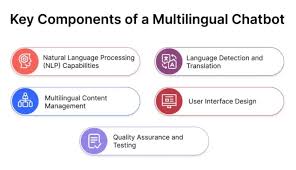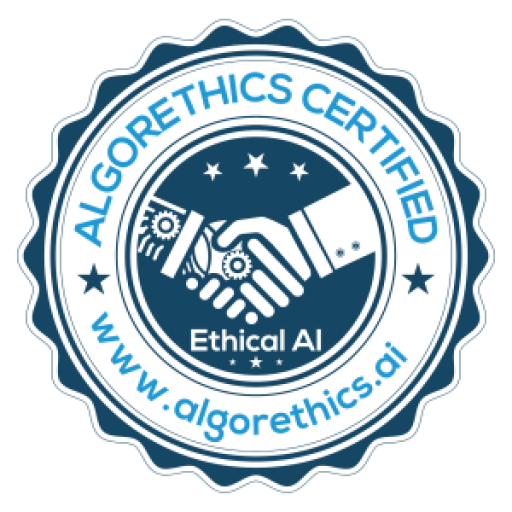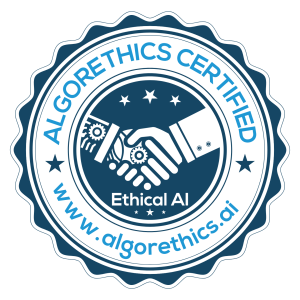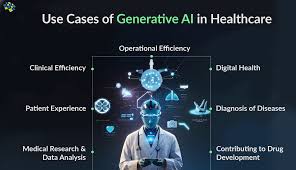Rising levels of anxiety, depression, and burnout among healthcare professionals (HCPs) underscore the urgent need for technology-driven interventions that optimize both clinical decision-making and workforce well-being. This innovation report introduces the Support, Management, Individual, Learning Enablement (SMILE) platform, designed to integrate advanced AI-driven decision support, federated learning for data privacy, and cognitive behavioral therapy (CBT) modules into a single, adaptive solution. A mixed-methods pilot evaluation involved focus groups, structured surveys, and real-world usability tests to capture changes in stress levels, user satisfaction, and perceived value. Quantitative analyses revealed significant reductions in reported stress and support times, alongside notable gains in satisfaction and perceived resource value. Qualitatively, participants praised SMILE’s accessible interface, enhanced peer support, and real-time therapeutic interventions. These findings confirm the feasibility and utility of a holistic, Artificial Intelligence (AI) supported framework for improving mental health outcomes in high-stress clinical environments. Theoretically, SMILE contributes to emerging evidence on integrated AI platforms, while it offers an ethically sound and user-friendly blueprint for improving patient care and staff well-being.
The SMILE platform was conceived to address the intensifying challenges that HCPs face in high-pressure environments. Anxiety, depression, and burnout now rank among the leading occupational hazards affecting HCPs, compromising both patient outcomes and the professionals’ well-being. By merging advanced technologies with evidence-based interventions, SMILE aspires to provide a holistic system that is readily adaptable to various clinical settings. Its focus on IDC and CBT aims to foster resilience, enhance clinical decision-making, and reduce daily stress levels among clinicians.
At its core, SMILE integrates three key components into an existing point-of-care ecosystem. First, the platform offers structured educational resources aligned with continuing medical education or learning management system frameworks, ensuring that HCPs remain current with evolving clinical guidelines and research developments. Whether these resources involve step-by-step tutorials on implementing new procedures or interactive sessions to master CBT fundamentals, they are continually updated and peer-reviewed to reflect the latest evidence-based practices. Second, SMILE incorporates AI-driven monitoring and personalized interventions, including CBT modules and NLP tools—that aim to reduce clinician stress and enhance patient care. By assessing user inputs, such as mood ratings or time spent on high-pressure tasks, SMILE can proactively suggest targeted strategies such as mindfulness breaks, on-demand training, or real-time peer consultation. Third, the platform employs secure data management and identity solutions, using blockchain-based consent mechanisms to protect sensitive information, address privacy concerns, and comply with regulatory standards like the GDPR. A defining feature of SMILE is its emphasis on IDC. Drawing on strategic management principles, IDC highlights the ability of individuals and organizations to adapt to a constantly shifting healthcare landscape.
Within SMILE, this takes shape through interactive training modules and guided simulations that help HCPs cultivate emotional resilience, cognitive flexibility, and technological proficiency. For instance, a primary care physician might complete a short CBT-based exercise to learn adaptive coping strategies for handling difficult patient interactions. Meanwhile, a nurse manager working under high-pressure circumstances may explore advanced scheduling algorithms integrated with AI, refining her capacity to delegate tasks and minimize workflow bottlenecks. By embedding these learning elements into daily routines, the platform fosters a culture of continuous improvement and professional education.
Another crucial aspect is SMILE’s capacity to integrate with other existing decision support systems or already operating healthcare systems for easy access. Rather than replacing the technology infrastructure already in place, SMILE augments it with value-added modules for mental health support professional development and systems interoperability. An HCP accessing a standard system can, for example, access SMILE’s AI analytics panel for stress self-assessments or quick references to specialized CBT content. This ensures minimal disruption to routine clinical tasks while opening a new avenue for real-time mental health resources. Additionally, clinicians can engage with the platform’s peer support network AI conversational channel, where encrypted communication channels facilitate private interactions and collaborative problem-solving—critical for mitigating feelings of isolation or burnout.
From an implementation standpoint, SMILE employs a phased deployment strategy. The system’s scalability and adaptability rank high among its design principles. SMILE offers multilingual support and culturally sensitive therapeutic tools, broadening its applicability in regions with diverse population demographics and healthcare priorities. Moreover, the platform’s architecture accommodates lower-bandwidth or offline scenarios, potentially expanding mental health resources into clinics with intermittent internet connectivity. By adopting federated learning, SMILE trains AI models locally on each site’s data, avoiding the centralization of sensitive clinical information while enabling the distribution of model improvements across multiple facilities. These safeguards resonate with the platform’s commitment to data ethics and secure data-sharing practices.
The SMILE platform offers a pioneering, integrated response to the escalating challenges in mental health care. By merging advanced AI-driven analytics, blockchain-based identity and consent management, and clinically grounded modules for CBT and NLP, SMILE transcends conventional approaches in this domain. Its ability to streamline clinician workflows—reducing stress and administrative inefficiencies—while simultaneously fostering a more personalized, equitable, and ethically compliant system demonstrates the viability of technologically sophisticated yet user-oriented solutions. Central to SMILE’s success is its emphasis on collaboration. Through active engagement with clinicians, policymakers, technologists, and academic researchers from inception to deployment, the platform remains aligned with genuine clinical requirements and ethical imperatives. The iterative, multidisciplinary collaboration also bolsters user trust and ownership, facilitating smoother adoption in real-world settings. In parallel, SMILE’s rigorous attention to security and data privacy, including the use of blockchain-based consent ledgers and federated learning, supports robust, transparent governance that is critical for mental health applications where data sensitivity is paramount.
Moving forward, scalability and global adaptability are integral to the platform’s evolution. Features such as multilingual support, culturally tailored interventions, and flexible, resource-sensitive deployment models enable SMILE to transcend geographical and infrastructural barriers. These attributes position the platform well to address disparities in care across diverse regions and resource levels. Nonetheless, future work must address the persistent challenges of ensuring unbiased AI outputs, maintaining ethical oversight across heterogeneous regulatory landscapes, and bridging the digital divide in underserved communities. Continuous monitoring of algorithmic fairness, iterative user feedback loops, and thoughtful investments in training and infrastructural improvements will be vital for sustaining SMILE’s impact over the long term. In essence, SMILE stands as an illustrative example of how interdisciplinary innovation, grounded in real-world needs and rigorous ethical principles, can reshape the future of mental healthcare. Its modular architecture, spanning advanced AI analytics and educational resources, highlights the potential for integrated platforms to optimize both patient care and clinician well-being. By uniting technology and human-centered design, SMILE paves a credible pathway toward a more equitable, efficient, and resilient mental healthcare ecosystem, setting a benchmark for future solutions in this evolving field.







